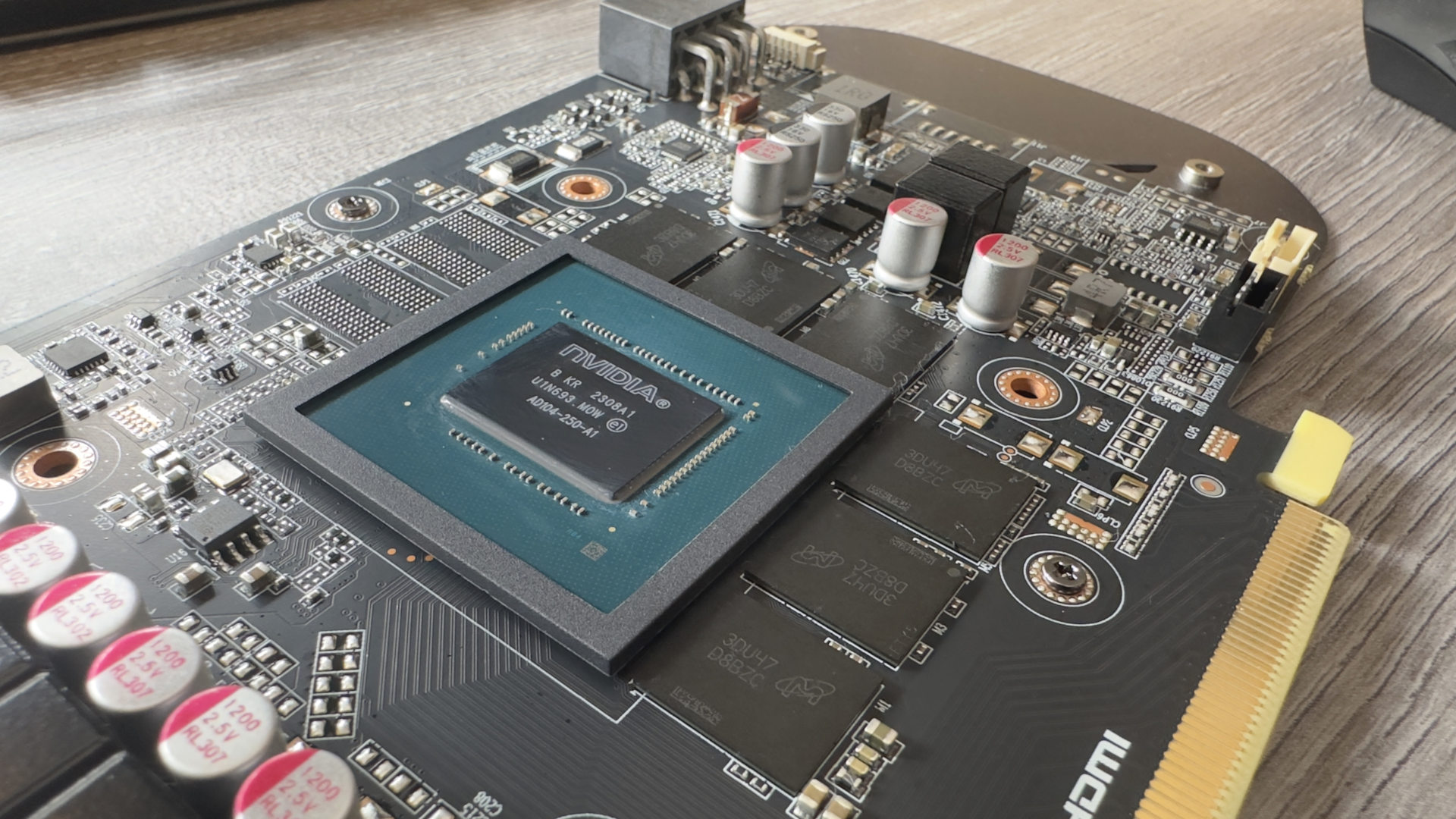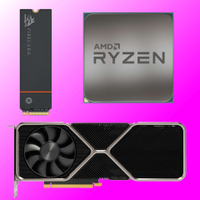GDDR6X VRAM is claimed to be in short supply and could lead to an RTX 4070 being launched with slower GDDR6 to meet the demand
Which should be fine, as long as it's not too much slower. Or the same price.

A tech site in China is reporting that the supply of Micron GDDR6X VRAM is currently in short supply. So much so that to meet the demand for the most popular GPU to use that memory, the GeForce RTX 4070, Nvidia may release a variant with slower, and cheaper, GDDR6 chips.
When it comes to VRAM and Nvidia's GeForce RTX 40-series, there's mostly only one choice: GDDR6X. The RTX 4070, 4080, and 4090 graphics cards, as well as all the Super variants, use high-speed memory that's exclusive to Micron. It also makes GDDR6 but so do other vendors, such as Samsung and SK Hynix, which helps keep the price down, though it's not quite as fast.
However, with Nvidia's dominance of the discrete video card market reliant on a single company in its supply chain, all it takes are a few hiccups to impact the chain and cause the production of cards to drop. According to BenchLife.info (via Harukaze5719 on X) that's exactly what's happening right now with the RTX 4070, Nvidia's most popular card that uses GDDR6X.
To meet the Chinese market's demand for that GPU, BenchLife suggests that Nvidia might be considering releasing a GDDR6-equipped variant of the RTX 4070.
The Founders Edition RTX 4070 and all third-party models come with 12 GB of Micron GDDR6X, clocked to 21 GT/s. Samsung mass produces 20 MT/s GDDR6 (though it does offer 24 MT/s for 'sampling') which is close enough in speed to be a suitable replacement. Where the former offers 504 GB/s of total memory bandwidth, an RTX 4070 with such GDDR6 would have 480 GB/s—a drop of just 5%.
Assuming that Nvidia does produce a GDDR6 variant of the RTX 4070, even if it's just for PC gamers in China, the obvious question to ask next is how much difference would there be in price? GDDR6 is used by AMD, Intel, Microsoft, Nvidia, and Sony so it's produced in far larger quantities and by three of the largest DRAM manufacturers in the world.
So, in general, it's a fair bit cheaper than GDDR6X, though determining exactly how much cheaper is hard to tell, as spot price tracking services typically don't report on Micron's prices for its faster VRAM. But as RTX 4070 uses six VRAM chips, even if GDDR6 is only a few dollars per module cheaper, it could potentially mean such a variant could have a price tag lower by $30 or more.
The biggest gaming news, reviews and hardware deals
Keep up to date with the most important stories and the best deals, as picked by the PC Gamer team.
That's unlikely, of course, as graphics card vendors won't pass on all the savings to the customer but any price reduction on the 4070 would be welcome, especially if it only resulted in 5% less memory bandwidth and barely any impact on gaming performance. AMD's alternative to the RTX 4070, the Radeon RX 7800 XT, uses GDDR6 rated at 19.5 MT/s and clearly doesn't suffer from using it, though it does have a much wider memory bus (256-bits vs 192-bits).
With a bit of luck, Nvidia will treat us to a slightly slower and cheaper RTX 4070 and if that happens, we'll try our best to get a sample in for review. If it does come to pass, let's hope that it's just not the same price, yes?
Best CPU for gaming: Top chips from Intel and AMD.
Best gaming motherboard: The right boards.
Best graphics card: Your perfect pixel-pusher awaits.
Best SSD for gaming: Get into the game first.

Nick, gaming, and computers all first met in 1981, with the love affair starting on a Sinclair ZX81 in kit form and a book on ZX Basic. He ended up becoming a physics and IT teacher, but by the late 1990s decided it was time to cut his teeth writing for a long defunct UK tech site. He went on to do the same at Madonion, helping to write the help files for 3DMark and PCMark. After a short stint working at Beyond3D.com, Nick joined Futuremark (MadOnion rebranded) full-time, as editor-in-chief for its gaming and hardware section, YouGamers. After the site shutdown, he became an engineering and computing lecturer for many years, but missed the writing bug. Cue four years at TechSpot.com and over 100 long articles on anything and everything. He freely admits to being far too obsessed with GPUs and open world grindy RPGs, but who isn't these days?


